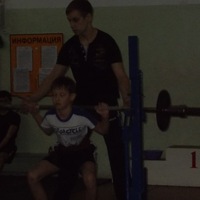
Спишите пословицы ,ВСТАВЛЯЯ пропущенные буквы . объясните!!!!!!! как вы понимаете значение этих
пословиц.1)Т..рпение и тру... всё 2)всё хорошо что хорошо конччает(?)СЯ.3)чу..т кошка чьё мясо с(?)ела .4)любиш(?) катат(?)ся люби и саноч(?)ки возить .5)делу-время поте..-час 6)кошк.. игрушки а мышк... слё..ки . 0
0
 0
0
Ответы на вопрос
 Внимание! Ответы на вопросы дают живые люди. Они могут содержать ошибочную информацию, заблуждения, а также ответы могут быть сгенерированы нейросетями. Будьте внимательны. Если вы уверены, что ответ неверный, нажмите кнопку "Пожаловаться" под ответом.
Внимание! Ответы на вопросы дают живые люди. Они могут содержать ошибочную информацию, заблуждения, а также ответы могут быть сгенерированы нейросетями. Будьте внимательны. Если вы уверены, что ответ неверный, нажмите кнопку "Пожаловаться" под ответом.

 0
0
 0
0

промто встааь эти буквы
 0
0
 0
0

I'll try to answer your question in detail. Here are the proverbs with the missing letters filled in and their meanings explained:
1) Терпение и труд всё перетрут. (Patience and hard work can overcome anything.) This proverb means that if you are persistent and diligent, you can achieve any goal or overcome any difficulty. It is often used to encourage someone who is facing a challenge or to praise someone who has succeeded in something.
2) Всё хорошо, что хорошо кончается. (All's well that ends well.) This proverb means that the outcome of a situation is more important than the process or the difficulties that occurred along the way. It is often used to express relief or satisfaction after a problem has been solved or a goal has been reached.
3) Чует кошка, чьё мясо съела. (The cat knows whose meat it ate.) This proverb means that a guilty person knows what they have done wrong and feels uneasy or ashamed. It is often used to imply that someone is hiding something or to warn someone that their wrongdoing will be exposed.
4) Любишь кататься, люби и саночки возить. (If you like to ride, you have to like to carry the sled.) This proverb means that you have to accept the consequences or responsibilities of your actions or choices. It is often used to remind someone that they have to deal with the unpleasant or difficult aspects of something they enjoy or want.
5) Делу - время, потехе - час. (There is a time for work and a time for play.) This proverb means that you have to balance your work and your leisure activities. It is often used to advise someone to be more serious or more relaxed, depending on the situation.
6) Кошке - игрушки, а мышке - слёзки. (Toys for the cat, tears for the mouse.) This proverb means that what is fun or beneficial for one person may be harmful or painful for another. It is often used to describe a situation where someone is exploiting or oppressing someone else.
 0
0
 0
0
Топ вопросов за вчера в категории Русский язык
Последние заданные вопросы в категории Русский язык






-
Математика
-
Литература
-
Алгебра
-
Русский язык
-
Геометрия
-
Английский язык
-
Химия
-
Физика
-
Биология
-
Другие предметы
-
История
-
Обществознание
-
Окружающий мир
-
География
-
Українська мова
-
Информатика
-
Українська література
-
Қазақ тiлi
-
Экономика
-
Музыка
-
Право
-
Беларуская мова
-
Французский язык
-
Немецкий язык
-
МХК
-
ОБЖ
-
Психология
-
Физкультура и спорт
-
Астрономия
-
Кыргыз тили
-
Оʻzbek tili















